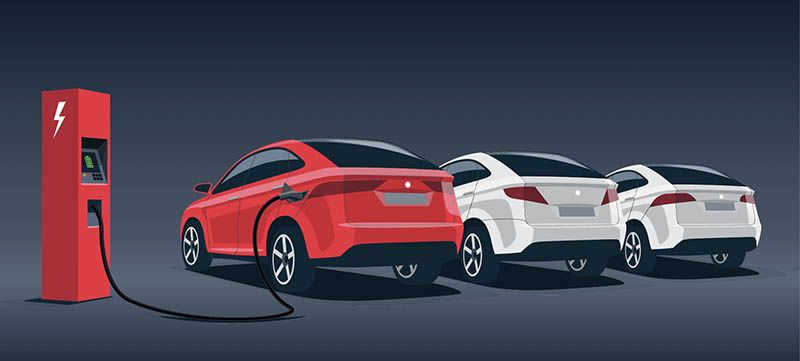The future of mobility is a hot topic as we navigate through 2023. Electric vehicles (EVs), hybrids, and traditional gas-powered cars each have their champions, but which is truly leading the charge? Recent data from Bloomberg Green reveals that EV sales have surged by 55% globally in the first half of 2023, highlighting a significant shift in consumer preferences. This article will delve into the latest trends, comparing EVs, hybrids, and gas vehicles to help you understand which is the best fit for the future.
The Rise of Electric Vehicles in 2023
EV Adoption Rates and Market Growth
- Global Surge in EV Sales: According to InsideEVs, EV sales are projected to account for 20% of all vehicle sales by the end of 2023, thanks to advancements in battery technology and increased government incentives.
- Leading the Charge: Tesla remains a dominant force, but emerging players like Rivian and Lucid Motors are also capturing market share with innovative models and luxury offerings.
- Infrastructure Expansion: The International Energy Agency (IEA) reports a 40% increase in charging stations worldwide, making EVs more accessible to the masses.
Advantages of EVs
- Environmental Impact: EVs produce zero tailpipe emissions, significantly reducing the carbon footprint compared to gas vehicles.
- Operational Costs: With fewer moving parts, EVs require less maintenance, and the cost of electricity is generally lower than gasoline.
- Incentives and Subsidies: Many countries offer tax breaks and incentives for EV purchases, making them financially attractive.
Hybrids: The Middle Ground
Hybrid Technology and Appeal
- Best of Both Worlds: Hybrids combine an internal combustion engine with an electric motor, offering improved fuel efficiency without range anxiety.
- Market Presence: Brands like Toyota and Hyundai have been pioneers, with models such as the Prius and Ioniq leading the hybrid segment.
Are Hybrids the Sustainable Choice?
- Fuel Efficiency: Hybrids can achieve up to 50 mpg, reducing fuel costs and emissions compared to traditional gas vehicles.
- Transition Vehicle: For those not ready to commit to a full EV, hybrids offer a practical compromise, blending familiar driving experiences with modern technology.
Gas Cars: Still Relevant or Outdated?
The Case for Gasoline Vehicles
- Current Market Share: Despite the rise of EVs and hybrids, gas cars still account for over 60% of global vehicle sales, as reported by Reuters Mobility.
- Infrastructure and Availability: Gas stations are omnipresent, providing convenience without the need for charging infrastructure.
Challenges Facing Gas Cars
- Regulations and Emissions: Increasingly stringent emissions regulations and the growing societal push towards sustainability challenge the long-term viability of gas cars.
- Resale Value: As EVs gain popularity, gas vehicles may see a decline in resale value, impacting long-term cost considerations.
Practical Considerations: What to Choose?
Factors to Consider When Choosing a Vehicle
- Budget and Incentives: Compare the total cost of ownership, including purchase price, fuel costs, and available incentives.
- Driving Habits: Consider your typical range needs and access to charging or fueling stations.
- Environmental Impact: Evaluate your commitment to reducing your carbon footprint and supporting sustainable practices.
Top Recommendations for 2023
- Best EV for Range: Tesla Model S, boasting a range of over 400 miles per charge.
- Best Hybrid for Efficiency: Toyota Prius, with exceptional fuel economy and proven reliability.
- Best Gas Car for Performance: Ford Mustang, offering traditional power and driving excitement.
Conclusion: The Road Ahead
In 2023, the choice between EVs, hybrids, and gas cars is more pivotal than ever. With electric vehicles leading the way in innovation and sustainability, they seem poised to become the default choice for many. Hybrids provide a comfortable transition, while gas cars still offer familiarity and widespread availability. As technology and infrastructure continue to evolve, we encourage you to consider your personal values and needs when making your next vehicle purchase.
Which vehicle type do you think will dominate the roads in the next decade? Share your thoughts and predictions with us in the comments. As we look to the future, embracing sustainable and innovative mobility solutions will be crucial in shaping a cleaner and more efficient transportation landscape.

